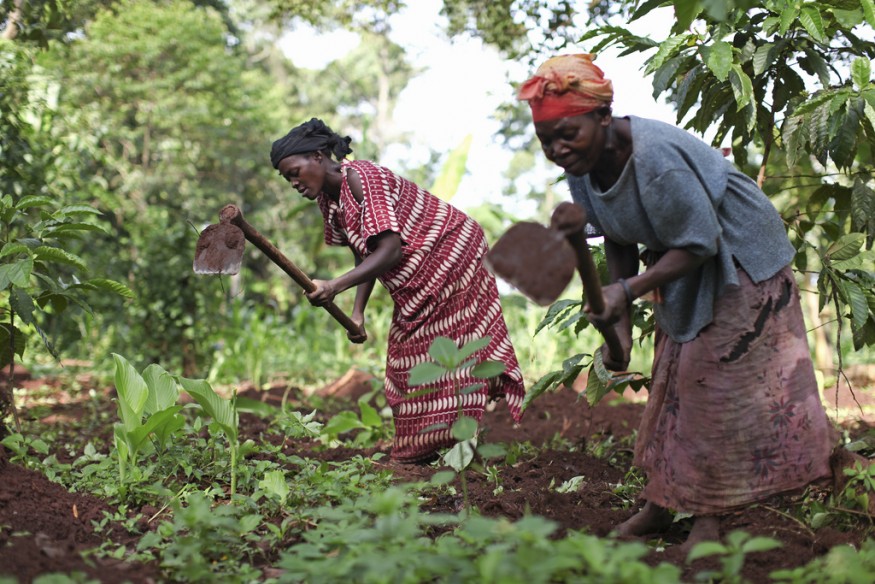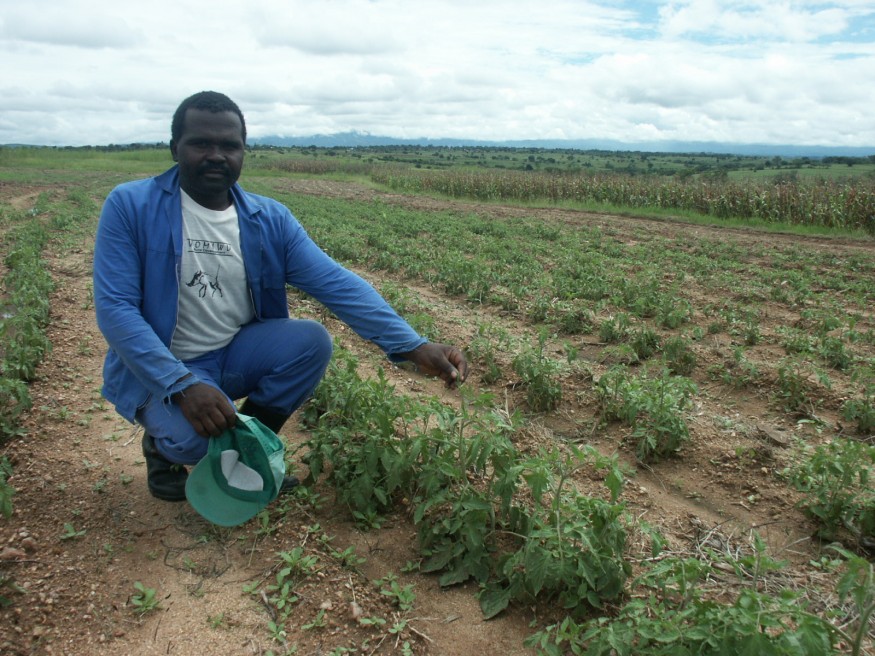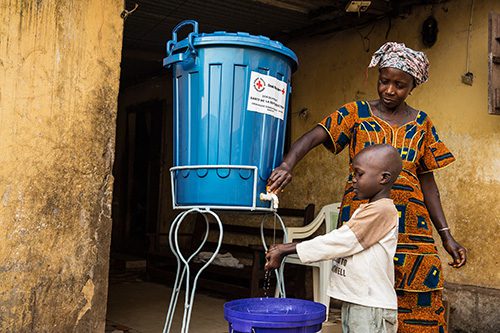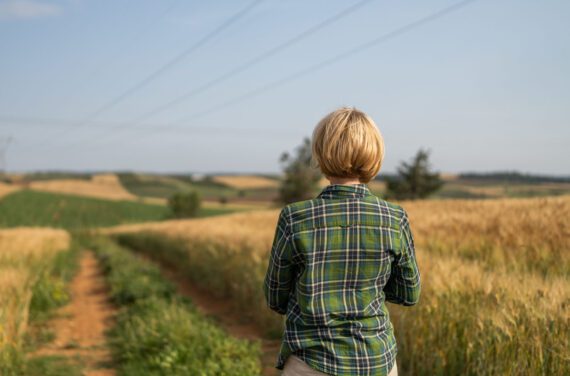Sprouted in Our Hearts Here and Grown for the Future There
By Beth Ann Saracco
In February, I found myself in an unlikely place for a girl raised in the Midwest. As I made my way through the packed Rubaga Cathedral in Kampala, Uganda, I noticed a women breast-feeding her baby. As a Bread for the World policy analyst specializing in international food security and nutrition issues, I was heartened to see her engaging in such a vital health and nutrition practice, beneficial to both mom and baby alike.
Finding an open seat next to a father and son, I leaned forward and kneeled. Bowing my head and closing my eyes, I began to pray. My heart was light that morning — so joyful, and excited for the opportunity I had just received. In my work for Bread in Washington, D.C., I advocate in support of top-line funding levels and programs for agriculture and development, but I rarely observe implementation of these programs on the ground. Now was my chance, and I was about to embark on a 15-day trip through Uganda, Kenya, and Tanzania.
My prayer to God that morning was a simple one. I asked to be attentive and open to the East Africans I would soon meet so that I could share their stories with members of Congress, administration officials, Bread staff, and especially our committed Bread members. What I experienced in the following days left me in awe as I witnessed the resolve and commitment of so many East Africans in improving their own lives and transforming the future for their children. These are aspirations I believe people of all backgrounds, nationalities, and creeds share.

Gazing into the future
As I learned about women’s cooperatives and farmers’ access to markets, new agriculture technologies from crop rotation to soil-fertility management to land-tenure rights, I began to understand how vital programs like Feed the Future are in not only contributing to a more food-secure world, but also in transforming the lives of each of the farmers I met. Feed the Future is the U.S. government’s global hunger and food-security initiative.
Augustino was one such farmer in Tanzania. As he greeted me, I was immediately drawn to the words printed on the T-shirt he was wearing. It read, “Future of Africa.” In my mind I thought never has a truer statement been made, because Augustino, along with his wife and their children, truly do represent the promising future of their country and the continent on which they live.
Now well-resourced with training they received from the agriculture cooperative in which they belong, Augustino and his wife have learned to produce higher-quality and larger yields of tomatoes. They have also recently expanded into cultivating rice, and they have aspirations to begin a trout fishery soon as well.
With their increased income, they can now afford to pay their children’s school fees, buy more nutritious food to supplement their children’s diets, and make other investments into their land.
What dawned on me was that with just a little outside support, guidance, and training, Augustino’s family did the rest. It’s their focused, hard work that tills the soil, it’s their bodies that carry heavy jugs of water to irrigate, and it’s their personal resolve to harvest increased and higher-quality crops that ultimately is moving them from subsistence farmers to a mother and father who are ensuring their children’s lives are filled with opportunity and upward mobility to a degree and depth their families have never known.

Closer to God, closer to others
Not surprisingly, my experience in East Africa reaffirmed my strong belief in the merits of programs like Feed the Future and the importance of ensuring Congress passes a law this year to authorize and make this a permanent program. But, it also did something else even more profound.
Through my conversations with farmers and personal reflection and prayer, I found myself drawn even closer to our loving God and God’s people.
God is truly moving in our time, in your life and mine, and in the lives of Augustino and his family in Tanzania — and in others’ lives in Africa and our entire world. And I am hopeful that with further discernment, prayer, and grace, we will continue our own sacred advocacy on Capitol Hill, and most importantly be drawn closer into relationship with our loving God and God’s people.
Beth Ann Saracco is the international policy analyst at Bread for the World.
“I witnessed the resolve and commitment of so many East Africans in improving their own lives…”



